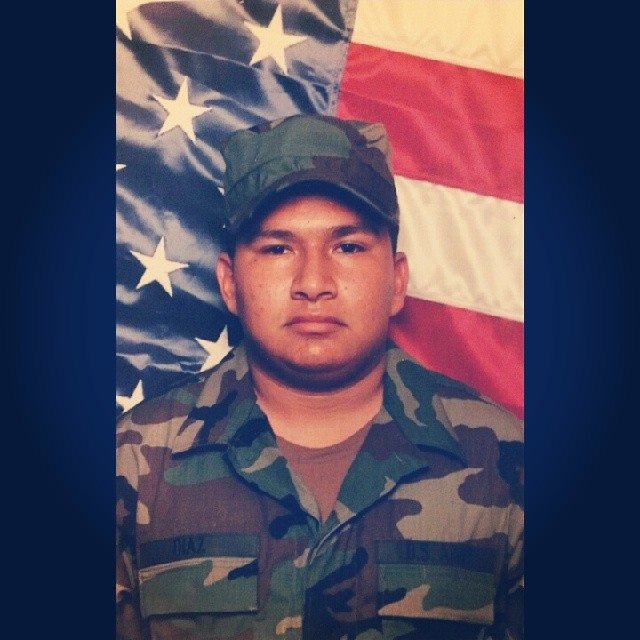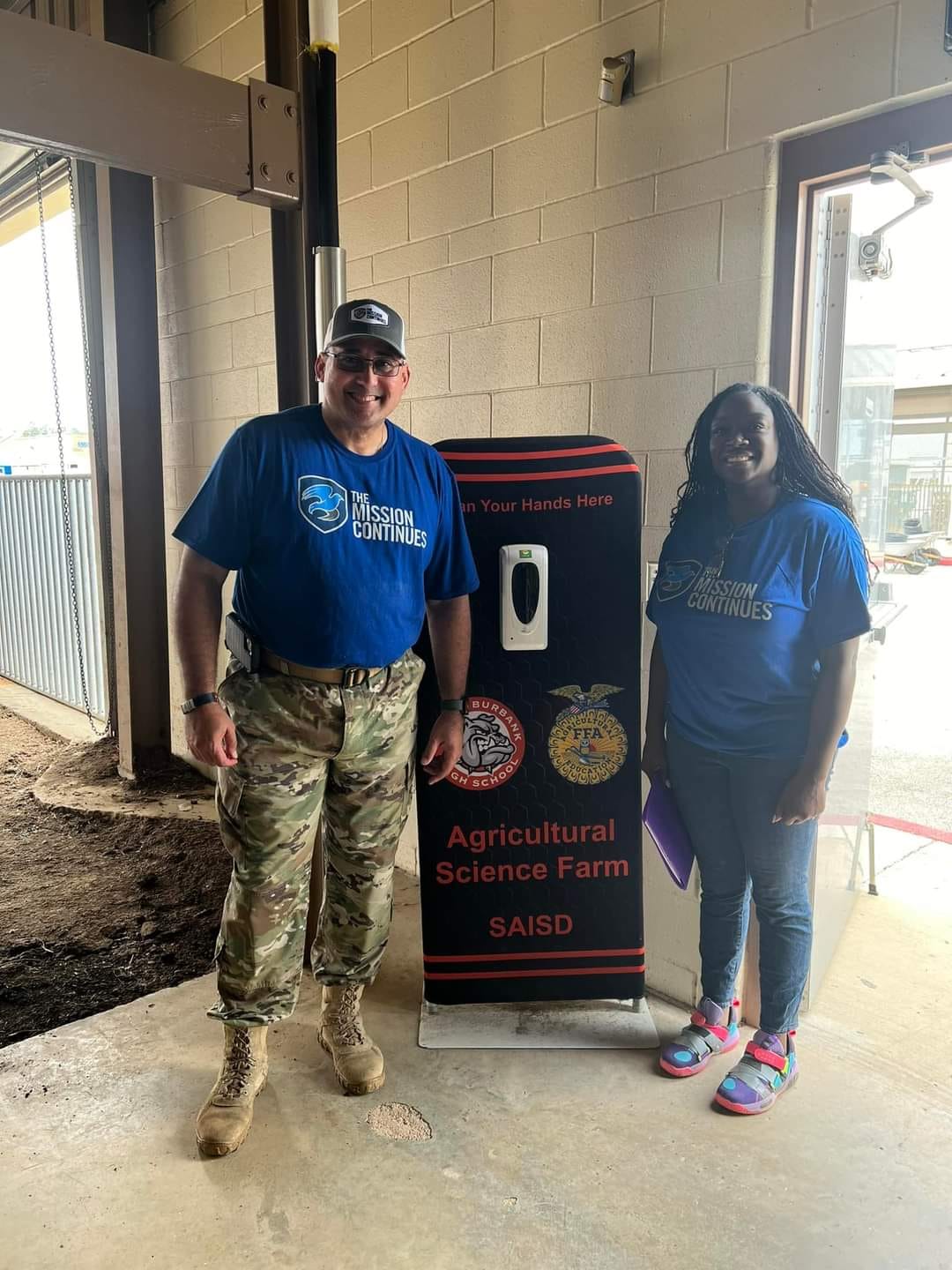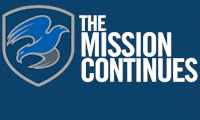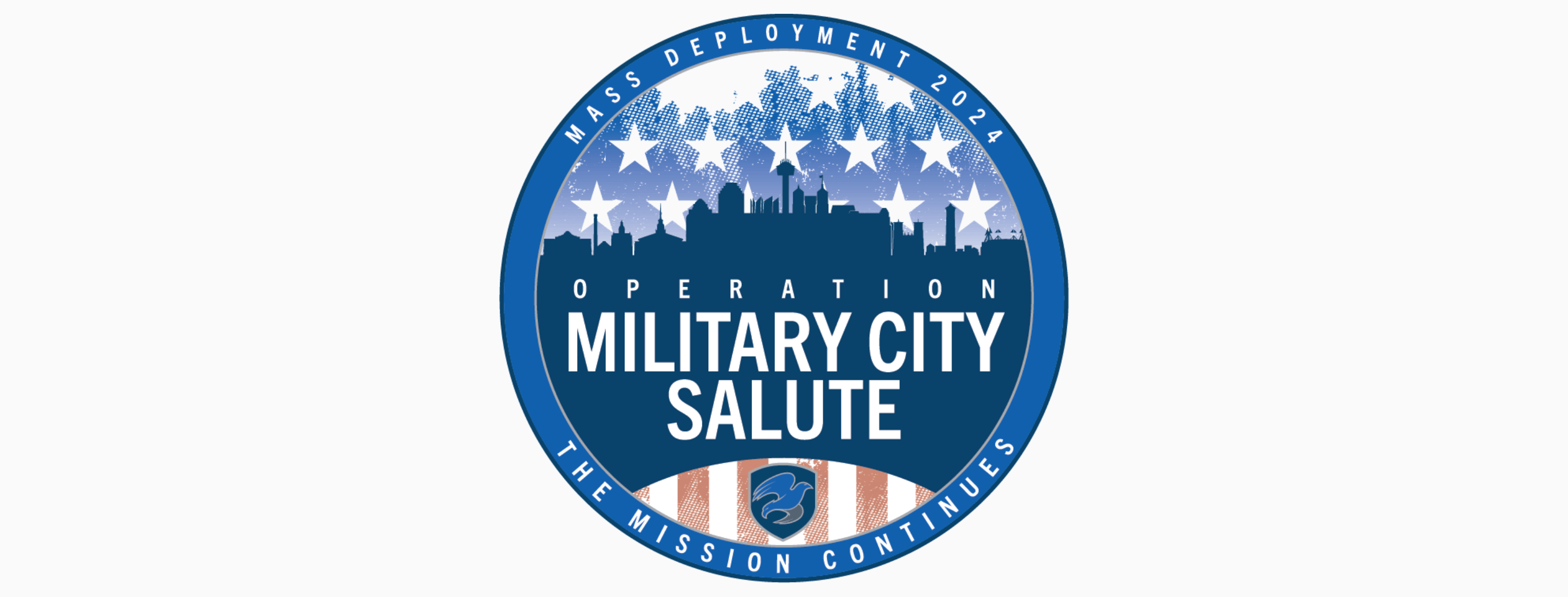Mental Health and Mission: Veteran Richard Diaz’s Inspiring Story with The Mission Continues
May 20, 2024

May is Mental Health Awareness Month, a time to reflect on the importance of mental well-being and the power of community. We believe that connection service is crucial to fostering positive mental health and a sense of purpose among veterans. We are proud to share the inspiring story of Richard Diaz, an Army veteran and the San Antonio Platoon Leader, whose journey exemplifies the profound impact of connection.
From Troubled Beginnings to Military Service
Richard Diaz grew up in San Antonio, Texas, where he faced numerous challenges that led him into trouble. Caught in a cycle of mischief and facing the possibility of imprisonment, it all came to a head one fateful day when he stood before a judge. Richard described feeling like he was in a scene from a movie. The judge presented him with a stark, life-altering choice: enlist in the military or face imprisonment. In that intense moment, Richard realized this was his chance to break free from this path and chose to enlist in the Army, seeking not only an escape but also a chance to redefine his future.


Richard loved his time in the service. Working as a crew chief for the iconic Apache combat helicopter brought him immense pride and a deep sense of accomplishment. The structure and camaraderie of military life provided him with a newfound purpose and identity. However, the decision to leave the military was difficult, and his transition back to civilian life proved to be one of his greatest challenges. Toward the end of his service, Richard struggled immensely due to family problems back home in San Antonio. His mind was constantly preoccupied with issues in Texas, diverting his focus from his duties. This distraction affected his performance, leading to conflict and friction with his leadership. The growing tension and unresolved personal issues ultimately contributed to his abrupt departure from the military, leaving Richard to navigate the daunting transition to civilian life without the structure and support he had come to rely on.
Like many veterans, Richard grappled with the challenges of adjusting to civilian life. The loss of structure, purpose, and the close-knit community of the military led to struggles with alcohol and mental health. The transition period was marked by significant difficulties as Richard sought to find his footing in a world that felt unfamiliar and isolating.
Richard’s journey back to mental well-being was marked by resilience and a commitment to healing. He discovered that reconnecting with a community of like-minded individuals was essential. Through The Mission Continues and other veteran service organizations like the Wounded Warrior Program, Richard found the support and camaraderie he needed to rebuild his life. His involvement in nature excursions provided a therapeutic escape and a path to holistic healing.



Finding Healing and Purpose Through Connection
Now serving as the San Antonio Platoon Leader, Richard is dedicated to helping other veterans find their way. He is also a master healer in Reiki and stress management, using his skills to support fellow veterans in their journeys toward mental wellness. His role involves leading service projects that address community needs while providing veterans with opportunities to connect and serve together. Richard’s journey from a troubled youth to a master healer and community leader is a powerful reminder of the transformative power of connection.
LISTEN to the full podcast episode featuring Richard Diaz’s inspiring story on Boots on the Ground by The Mission Continues
What does The Mission Continues do to contribute to positive mental health outcomes?
We offer leadership development training, online learning opportunities, and service platoons in 40+ cities across the country. These opportunities help to reduce social isolation and rekindle that sense of purpose through serving right here at home.
Connectedness – Serving alongside other veterans and volunteers in your community and nationwide. With Social isolation being a risk factor and loneliness being an epidemic, TMC’s intentionality in its upstream prevention approach of creating an environment of belonging is more important than ever. We design our service event to ensure volunteers can build and deepen relationships with others. Nearly all veterans in our network feel more connected to others because of our Service Platoons.
Purpose is paramount to mental health, and adjusting to civilian life can negatively impact veterans’ outlook on the future. Nearly all veterans in our network say we have given them a greater sense of purpose through continued service and leadership opportunities.
Growth – Volunteering with The Mission Continues provides veterans with leadership and personal growth opportunities, that can help them in their personal and professional lives. Our community service projects are designed to help volunteer leaders increase hard and soft skills related to project management, communication, leading diverse teams, and more.









Richard’s work with the San Antonio Platoon is a testament to the power of service. By teaming up with fellow veterans, non-veteran volunteers, community partners, local residents, and sponsors, Richard and his team leave a lasting impact on their community. These service projects not only address critical needs but also provide veterans with a renewed sense of purpose and the opportunity to reconnect with a supportive network.
You can help veterans like Richard continue to find purpose and healing. Your donation to The Mission Continues supports vital programs that empower veterans to lead and thrive.
Richard Diaz’s journey is a powerful reminder that the battles we face do not end once we take off the uniform. As we observe Mental Health Awareness Month, we encourage everyone to consider the importance of connection in fostering mental well-being. Whether you are a veteran, a family member, or a supporter, your role in building a supportive community is invaluable. Join us in our mission to empower veterans and create positive change. Charlie Mike, Continue the Mission!
 You are successfully logged in.
You are successfully logged in.






